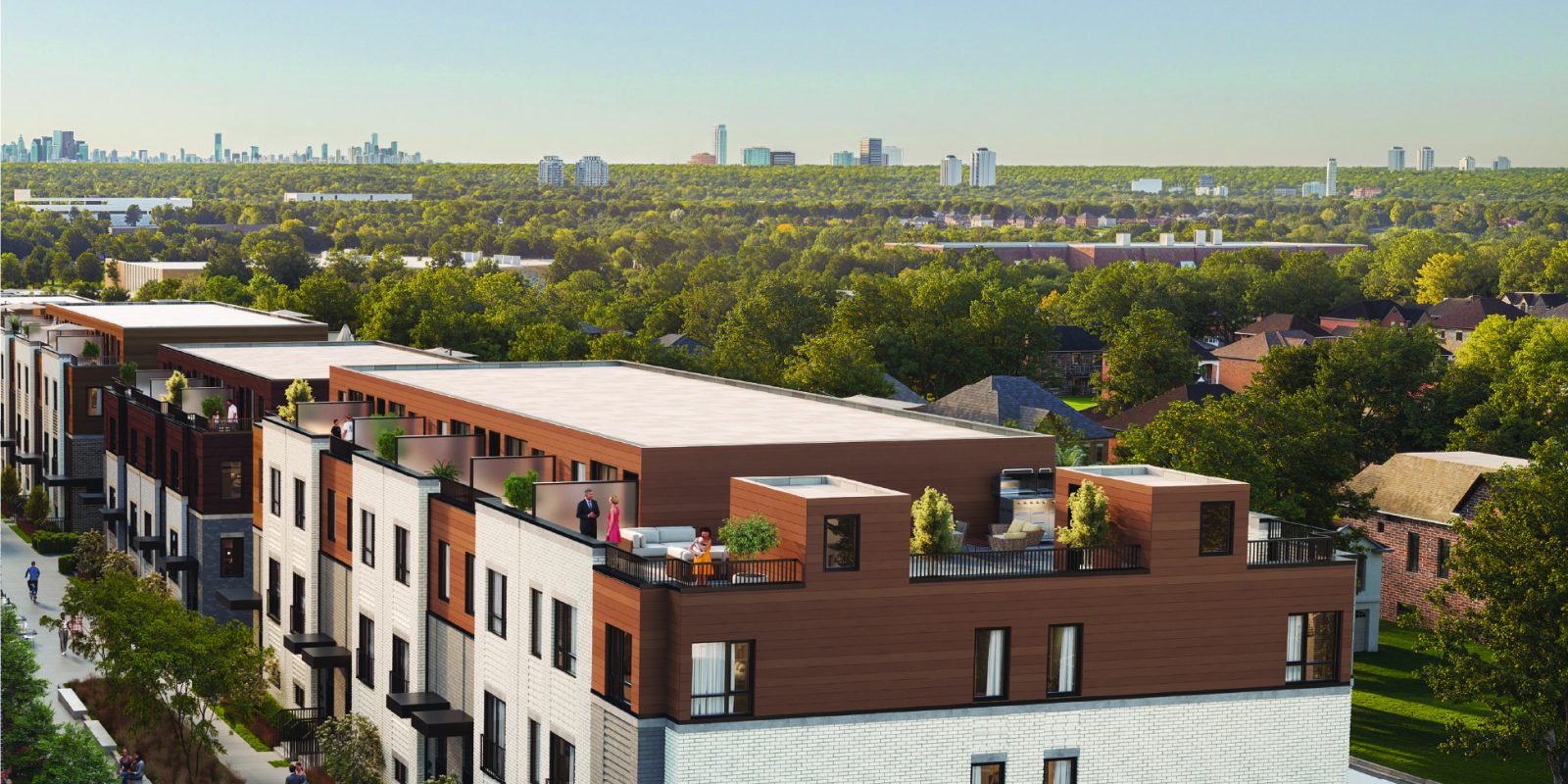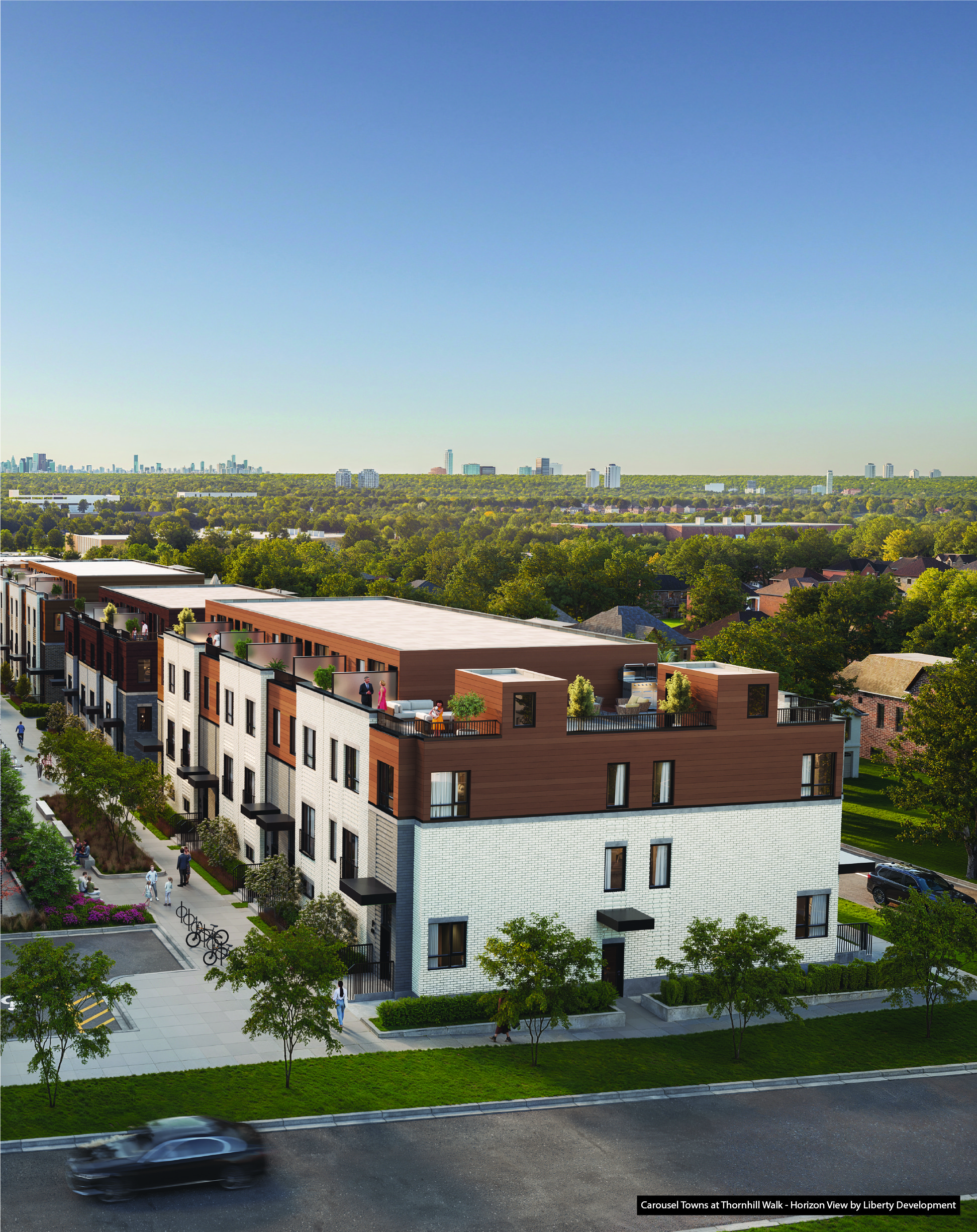

Guide To Buying Pre-Construction Projects In Ontario - Part 5/5
This is the last part of a five-part series on buying a pre-construction property in Ontario (click here to read part 4)
Let’s get started!
- Buying to live or buying for an investment
- Find an area of interest
- Research the project
- Find a realtor who specializes in preconstruction
- Visit your lender for a pre-approval
- Understand important timelines in preconstruction
- Work with your realtor to narrow down your choices
- Consider incentives or promotions
- Visit the sales centre with your realtor
- Know what to bring with you before buying
- Understand the 10-day cooling off period
- Sign the agreement of purchase and sale with the builder
- Have a lawyer review the agreement of purchase and sale
- Understanding HST implications
- Understanding development charges and closing costs
- Plan for the assignment clause
- Understanding interim occupancy and occupancy fees
- Review Tarion Warranty coverage
- Stay informed during construction
- Closing on the purchase with the builder

UNDERSTANDING INTERIM OCCUPANCY AND OCCUPANCY FEES
When you’re buying into a big condo development, here’s something important to know: you won’t get your keys all at once when the building is “done.” Instead, developers hand over units in phases as different sections get completed. Usually, they’ll finish the lower floors first and work their way up.
Once enough units are ready and the shared spaces like lobbies and amenities are functional, that’s when the occupancy period kicks in. Think of this as a transitional phase where you can move in and live there, but you’re not technically the legal owner just yet.
During occupancy, you’ll pay what’s called an occupancy fee to the developer each month. This fee covers three main things: interest on your remaining balance, estimated property taxes, and projected maintenance costs. Essentially, it’s like paying rent on the place you’re about to own.
This occupancy period can be anywhere from a few weeks to well over a year, depending on how quickly the rest of the building gets finished. You’re stuck paying this monthly fee until the entire building is completed and officially registered with the municipality. Only then do you start making regular mortgage payments and get the actual deed in your name.
If you’re planning to be an investor, it’s important to know that most developers won’t let you rent out your unit during occupancy. Break this rule, and you could face serious penalties or even lose your purchase agreement. This creates a real challenge for investors who end up paying monthly occupancy fees without any rental income coming in.
The good news? Some forward-thinking developers now offer special incentives that allow rental during occupancy, but you need to negotiate this upfront when you’re making your purchase. This is where having experienced agents like those at RE/MAX Team Paliwal becomes invaluable. Our established relationships with builders give us the leverage to secure these types of rental permissions that can save investors thousands of dollars over the occupancy period.
REVIEW TARION WARRANTY COVERAGE
Getting Familiar with Tarion Protection
When you buy a new home in Ontario, you automatically get coverage through the Tarion Warranty Program. This isn’t just basic protection – it’s comprehensive coverage that shields you from construction problems, poor workmanship, and major structural issues. The program also includes safeguards for delays and deposit protection.
One-Year Warranty For Workmanship & Materials
Your warranty kicks in the moment you get your keys, even if you’re moving in during the occupancy phase of a condo development. For the first twelve months, you’re protected against any problems with materials or workmanship quality. This means everything from your flooring and kitchen cabinets to paint and fixtures needs to be in proper, move-in condition.
Two-Year Warranty For Major Systems
During your second year, the focus shifts to your home’s major systems. If you run into problems with plumbing, heating, electrical work, or exterior elements like brickwork and siding, you’re covered. Water penetration issues affecting your basement or foundation walls also fall under this protection.
Seven-Year Warranty For Structural Defects
The most comprehensive coverage lasts for seven full years and addresses serious structural problems. This includes anything affecting load-bearing elements, your foundation, or roofing systems – basically, the bones of your home.
Delayed Closing & Occupancy Coverage
Sometimes builders miss their promised closing or occupancy dates. When this happens (and it’s not due to something you did or completely unforeseeable circumstances), Tarion steps in with compensation to help offset the inconvenience and costs.
You can review the complete coverage details for condos here, and for freehold homes here.
Deposit Protection
Tarion also safeguards your deposit money. For homes purchased after January 1, 2018, here’s how it works: if your purchase price is $600,000 or under, you get up to $60,000 in deposit protection. For pricier homes, you’re covered for up to 10% of the purchase price, with a ceiling of $100,000.
Condo buyers get slightly different treatment – if the builder cancels your agreement, they must return your deposit within 10 days. If they don’t comply, Tarion provides up to $20,000 in coverage.
More details about deposit protection can be found here.
Pre-Delivery Inspection
Before you officially move in, you’ll complete what’s called a Pre-Delivery Inspection (PDI). This is your chance to walk through every inch of your new home and flag any issues you spot. Don’t rush this process – it creates the official starting point for your warranty coverage and serves as your baseline record.
Document everything you notice, no matter how minor it seems. Take photos, make notes, and be thorough. Remember, most warranty issues can be resolved directly with your builder, so approaching them promptly and cooperatively often leads to faster solutions.
STAYING INFORMED DURING CONSTRUCTION
Why Staying Connected Matters
Once you’ve committed to a preconstruction purchase, keeping tabs on how things are progressing becomes really important. Here in Ontario, everything from unpredictable weather to workforce issues and supply chain hiccups can push back completion timelines – sometimes significantly.
How Builders Keep You in the Loop
The good news is that most developers understand buyers want to stay informed. The larger, more established builders like Tridel have gotten really good at this, sending out regular progress reports complete with photos and video updates showing exactly what’s happening on-site.
Smaller developers might use different approaches – you might get updates through monthly newsletters, private Facebook groups for buyers, or direct email campaigns. The key is making sure you’re signed up for whatever communication method your builder uses.
Your Agent as Your Inside Source
Here’s something that might surprise you: your realtor often gets information about delays, feature changes, or important project updates before you do. That’s because they maintain direct relationships with the sales teams and project managers. Make it a habit to touch base with your agent regularly – they’re your early warning system for any developments that might affect your timeline or budget.
Getting a First-Hand Look
Some builders will organize periodic site visits where you can actually walk through your future home during construction. These tours can be incredibly valuable for understanding progress and spotting any potential issues early. Just remember to follow all safety protocols if you participate.
The Dates That Really Matter
Keep a close eye on three critical milestones: when interim occupancy is expected to begin, your anticipated final closing date, and any important notice periods where you need to make decisions or take action. Builders are required to give you formal notice about these events, but it’s smart to expect some flexibility in the timeline.
Planning for the Unexpected
While nobody likes delays, they’re common enough that you should build some buffer time into your planning. This is especially important for your financial preparation – you want to be ready whether things move faster or slower than originally projected.
CLOSING ON THE PURCHASE WITH THE BUILDER
The Home Stretch
After what might feel like forever, you’ve reached the final stage of your preconstruction journey. The building is complete, the municipality has given its official approval, and it’s time to make this property officially yours. If you’ve been living through the occupancy phase, you’re probably more than ready to start making regular mortgage payments instead of those monthly occupancy fees.
Your Legal Team Takes the Lead
This is where your lawyer becomes your MVP. They’ll manage all the complex paperwork involved in getting the deed transferred into your name, ensuring the property gets properly registered, and handling the payment of various closing costs. The key here is preparation – make sure you’ve got all your documentation organized and your finances lined up well before the big day.
Understanding Your Final Bill
You’ll receive what’s called a Statement of Adjustments, which is basically a comprehensive breakdown of every cost associated with your closing. This includes things like development charges, land transfer taxes, and adjustments for utilities. Don’t just glance at it – go through every line item with your lawyer to make sure you understand what you’re paying for.
Locking in Your Financing
This is also your moment to finalize everything with your mortgage lender. Even if you got pre-approved ages ago, it’s worth double-checking that your financing terms still work for your current situation. Interest rates, lending policies, and your personal financial picture might have shifted since you first applied
The Official Handover
Once all the documents are signed and the title is officially in your name, you’ll need to take care of a few housekeeping items. This usually means contacting utility companies to transfer accounts into your name and setting up any services you’ll need.
Monthly Responsibilities Begin
If you’re now a condo owner, this is when your monthly maintenance fee obligations start. Freehold homeowners can skip this particular expense, but everyone needs to budget for their new monthly housing costs.
You Made It!
This closing day represents the end of what’s likely been a marathon process and the start of an exciting new phase of homeownership.
We realize there’s been a lot of information to absorb throughout this entire process. That’s exactly why we’re here to guide you through every detail of preconstruction purchasing. Whether this is your first venture into new construction or you’re a seasoned buyer looking for a refresher, having expert support ensures you won’t overlook any critical steps along the way!

BUY WITH ONE OF THE TOP 50 TEAMS* IN CANADA
As one of the most trusted and highly reviewed real estate teams in the GTA with over 240+ reviews, RE/MAX Team Paliwal is ready to serve you with integrity, expertise, and experience. Join hundreds of happy preconstruction buyers and contact us today to schedule your no-obligation buyer consultation meeting! You can also visit our website at: www.realvaluehome.ca to find the latest preconstruction projects in the GTA.
Tell us what are you looking for by filling the form below and we will be in touch right away
Dream Home
Explore Reviews and Testimonials to see why clients trust TEAM Paliwal, the REMAX Agents in Mississauga Oakville. The perfect moment has arrived to “Find Your Dream Home,” and the dedicated professionals at TEAM Paliwal from Remax Realty Specialists Inc in Mississauga are ready to provide you with unparalleled personal attention.
To be among the first to receive new listings of homes for sale, fill out the form. No obligation — just daily updates to help you find YOUR DREAM HOME!
As we progress, we’ll explain and request you to sign a Buyer Representation Agreement, ensuring the highest quality of real estate service.
Verified Reviews of The Best Real Estate Team
- Amit Arora, October 2023
- Nimish Sharma, October 2023
- Ruchi Naik, October 2023
- Mohamed Elghazaly, October 2023
- Anu Chadha, August 2023

